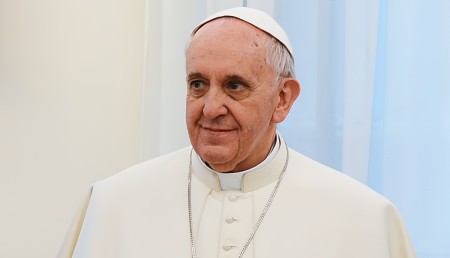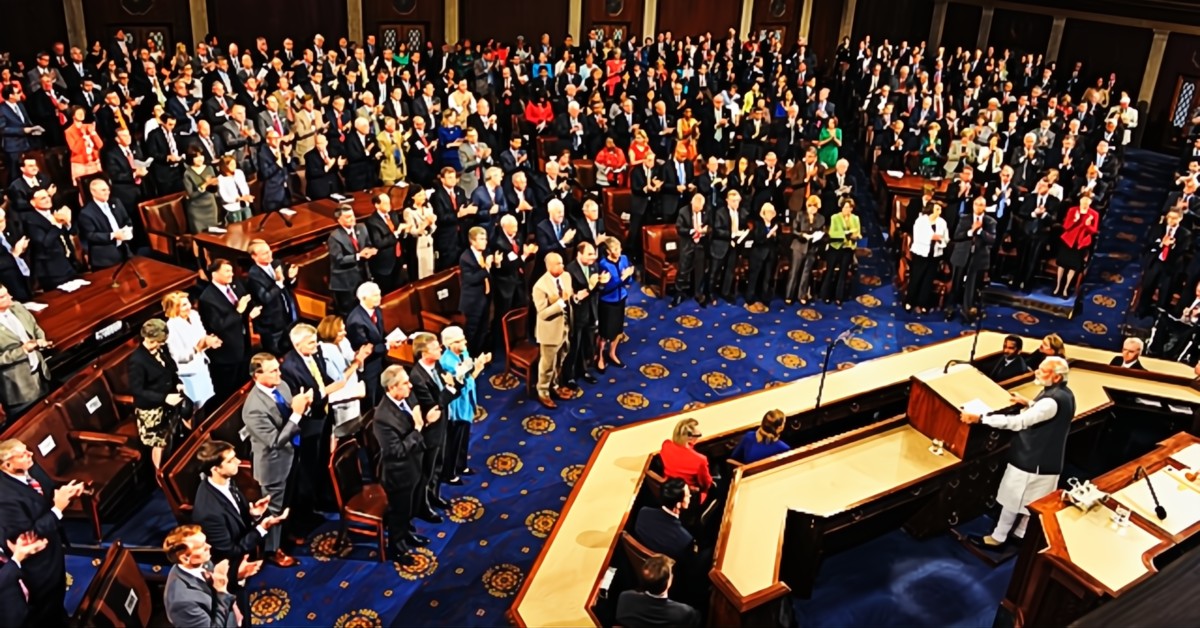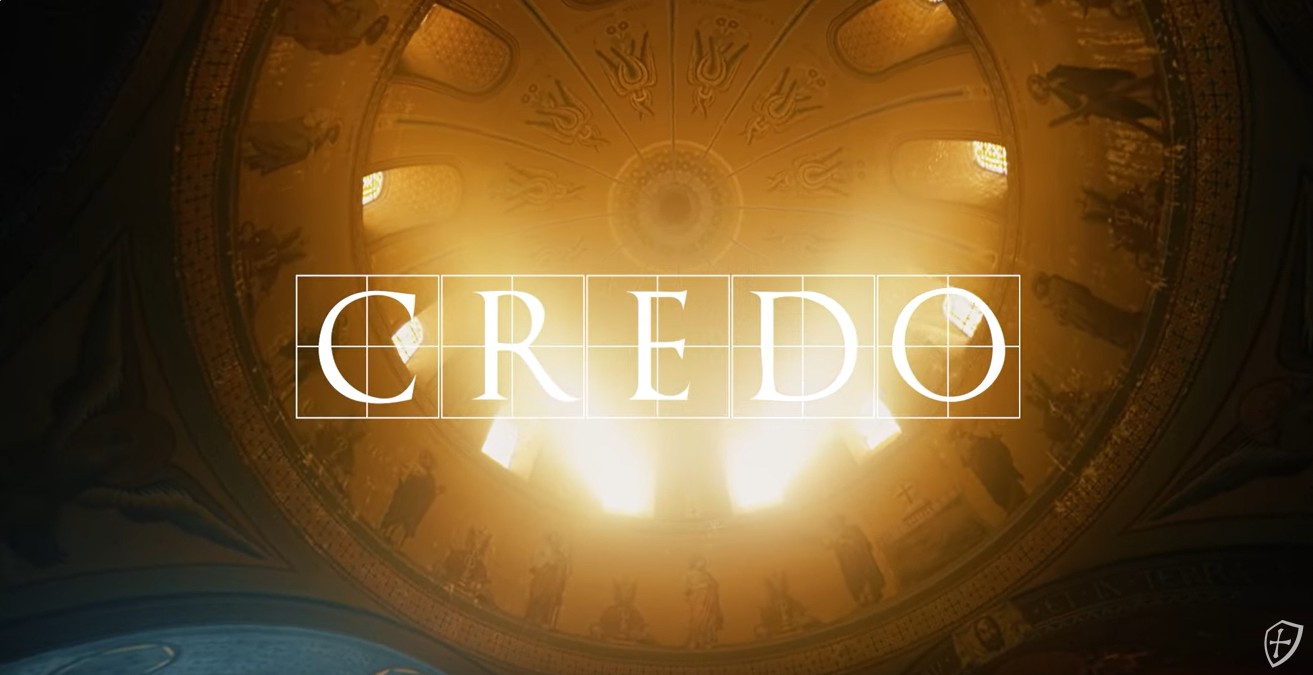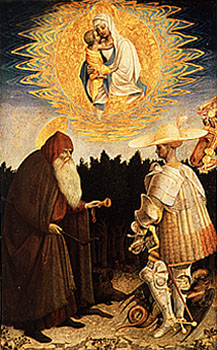We ask you, urgently: don’t scroll past this
Dear readers, Catholic Online was de-platformed by Shopify for our pro-life beliefs. They shut down our Catholic Online, Catholic Online School, Prayer Candles, and Catholic Online Learning Resources—essential faith tools serving over 1.4 million students and millions of families worldwide. Our founders, now in their 70's, just gave their entire life savings to protect this mission. But fewer than 2% of readers donate. If everyone gave just $5, the cost of a coffee, we could rebuild stronger and keep Catholic education free for all. Stand with us in faith. Thank you.Help Now >
Orthodox Patriarch Addresses the Synod on the Word
FREE Catholic Classes
Orthodox Patriarch Bartholomew I of Constantinople spoke of using one's "spiritual senses" to perceive the Word of God.
Highlights
VATICAN CITY (Zenit) - Most Christians have heard the Word of God, but have they seen it in art or nature, or realized they were touching it in the Eucharist?
Orthodox Patriarch Bartholomew I of Constantinople spoke Saturday afternoon at the celebration of vespers in the Sistine Chapel of using one's "spiritual senses" to perceive the Word of God.
The event, presided over by Benedict XVI and attended by some 400 cardinals, bishops, religious and laypeople, took place within the context of the world Synod of Bishops on the Word of God, which is under way in the Vatican through Oct. 26.
The first patriarch in history to be invited to address a world Synod of Bishops, Bartholomew I noted that his presence was "an important step toward the restoration of our full communion."
"We regard this as a manifestation of the work of the Holy Spirit leading our Churches to a closer and deeper relationship with each other," he said.
Sitting with Michelangelo's "Final Judgment" behind him, the patriarch discussed the importance of the synod's theme."The Church needs [...] to rediscover the Word of God in every generation," he said, "and make it heard with a renewed vigor and persuasion also in our contemporary world, which deep in its heart thirsts for God's message of peace, hope and charity."
He continued: "This duty of evangelization would have been, of course, greatly enhanced and strengthened if all Christians were in a position to perform it with one voice and as a fully united Church."It is, therefore, most appropriate, that this synod has opened its doors to ecumenical fraternal delegates so that we may all become aware of our common duty of evangelization as well as of the difficulties and problems of its realization in today's world."
Scriptural Church
The patriarch, drawing on the Patristic doctrine of the "spiritual senses," then spoke of three "spiritual ways of perceiving" the Word of God: "listening to God's Word, beholding God's Word, and touching God's Word."He reflected first of all "on hearing and speaking the Word of God through the holy Scriptures."
"The Christian Church is, above all, a scriptural Church," Bartholomew I said. "Although methods of interpretation may have varied [...] Scripture was always received as a living reality and not a dead book."
"In the context of a living faith," he added, "Scripture is the living testimony of a lived history about the relationship of a living God with a living people."The patriarch said that in this sense that Christians must "provide a unique perspective -- beyond the social, political, or economic -- on the need to eradicate poverty, to provide balance in a global world, to combat fundamentalism or racism, and to develop religious tolerance in a world of conflict."
Art and nature
Bartholomew I affirmed that the Word of God can be seen "in nature and above all in the beauty of the icons": "Nowhere is the invisible rendered more visible than in the beauty of iconography and the wonder of creation."
"Icons are a visible reminder of our heavenly vocation," he explained. "They are invitations to rise beyond our trivial concerns and menial reductions of the world. They encourage us to seek the extraordinary in the very ordinary.
"Icons underline the Church's fundamental mission to recognize that all people and all things are created and called to be 'good' and 'beautiful.'"Regarding nature, the patriarch affirmed: "All genuine 'deep ecology' is, therefore, inextricably linked with deep theology."
"Even a stone," Bartholomew I stated, quoting Basil the Great, "bears the mark of God's Word. This is true of an ant, a bee and a mosquito, the smallest of creatures. For he spread the wide heavens and laid the immense seas; and He created the tiny hollow shaft of the bee's sting."
The patriarch added, "Recalling our minuteness in God's wide and wonderful creation only underlines our central role in God's plan for the salvation of the whole world."
Sacraments and saints
Bartholomew I said that the Word of God, which "receives his full embodiment" in the sacrament of the Eucharist, can be touched and shared "in the communion of saints and the sacramental life of the Church."In the Eucharist, he explained, "the Word becomes flesh and allows us not simply to hear or see him, but to touch him with our own hands."
"Word and sacrament become one reality," the patriarch added. "The word ceases to be 'words' and becomes a Person, embodying in himself all human beings and all creation."
Bartholomew I said the example of saints is "the tangible experience and human expression of God's Word in our community.""In the gentle presence of a saint," he explained, "we learn how theology and action coincide. In the compassionate love of the saint, we experience God as 'our father' and God's mercy as 'steadfastly enduring.'"
"Each of us is called to 'become like fire,' to touch the world with the mystical force of God's Word," he said, "so that -- as the extended Body of Christ -- the world, too, might say: 'Someone touched me!'"
Healing revolution
"Evil," continued Bartholomew I, "is only eradicated by holiness, not by harshness. And holiness introduces into society a seed that heals and transforms."
"It is like the tectonic plates of the earth's crust," he explained. "The deepest layers need only shift a few millimeters to shatter the world's surface.
"Yet for this spiritual revolution to occur, we must experience radical 'metanoia' -- a conversion of attitudes, habits and practices -- for ways that we have misused or abused God's Word, God's gifts and God's creation."
The patriarch added: "The challenge before us is the discernment of God's Word in the face of evil, the transfiguration of every last detail and speck of this world in the light of Resurrection.The victory is already present in the depths of the Church, whenever we experience the grace of reconciliation and communion."
Join the Movement
When you sign up below, you don't just join an email list - you're joining an entire movement for Free world class Catholic education.

-

-
Mysteries of the Rosary
-
St. Faustina Kowalska
-
Litany of the Blessed Virgin Mary
-
Saint of the Day for Wednesday, Oct 4th, 2023
-
Popular Saints
-
St. Francis of Assisi
-
Bible
-
Female / Women Saints
-
7 Morning Prayers you need to get your day started with God
-
Litany of the Blessed Virgin Mary
Pope Francis Suffers Fall: A Look at Papal Health and Succession
-

The Erosion of Civility in Congressional Hearings: A Call for Professional Decorum
-

Bishop Strickland and Others Defend Apostolic Tradition in New Documentary on the Church's Enduring ...
-
At Least 25 Dead as Wildfires Continue to Rage Across Los Angeles, Arson Investigations Underway
-
Australian Woman Charged with Torture After Exploiting Child for Donations
Daily Catholic
 Daily Readings for Friday, January 17, 2025
Daily Readings for Friday, January 17, 2025 St. Anthony the Abbot: Saint of the Day for Friday, January 17, 2025
St. Anthony the Abbot: Saint of the Day for Friday, January 17, 2025 Prayer for a Blessing on the New Year: Prayer of the Day for Tuesday, December 31, 2024
Prayer for a Blessing on the New Year: Prayer of the Day for Tuesday, December 31, 2024- Daily Readings for Thursday, January 16, 2025
- St. Fursey: Saint of the Day for Thursday, January 16, 2025
- St. Theresa of the Child Jesus: Prayer of the Day for Monday, December 30, 2024
![]()
Copyright 2024 Catholic Online. All materials contained on this site, whether written, audible or visual are the exclusive property of Catholic Online and are protected under U.S. and International copyright laws, © Copyright 2024 Catholic Online. Any unauthorized use, without prior written consent of Catholic Online is strictly forbidden and prohibited.
Catholic Online is a Project of Your Catholic Voice Foundation, a Not-for-Profit Corporation. Your Catholic Voice Foundation has been granted a recognition of tax exemption under Section 501(c)(3) of the Internal Revenue Code. Federal Tax Identification Number: 81-0596847. Your gift is tax-deductible as allowed by law.







 Daily Readings for Friday, January 17, 2025
Daily Readings for Friday, January 17, 2025 St. Anthony the Abbot: Saint of the Day for Friday, January 17, 2025
St. Anthony the Abbot: Saint of the Day for Friday, January 17, 2025 Prayer for a Blessing on the New Year: Prayer of the Day for Tuesday, December 31, 2024
Prayer for a Blessing on the New Year: Prayer of the Day for Tuesday, December 31, 2024

